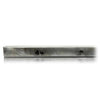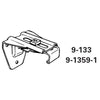6 Clever Room Dividers for Open Plan Living
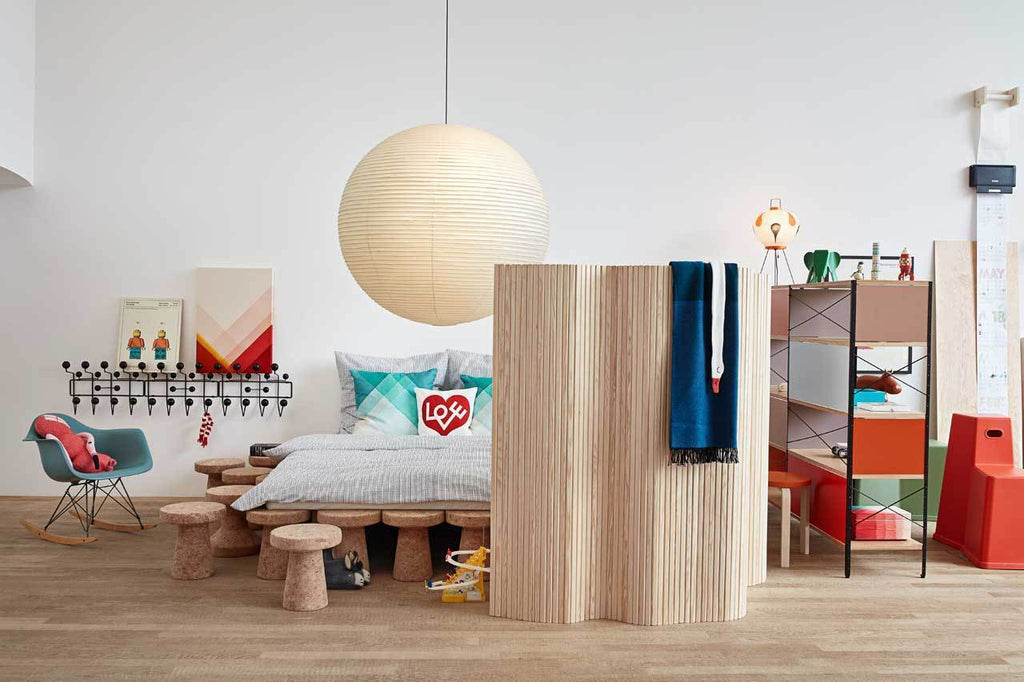
Whether you have to make the most of a small space or break up a big one, using a room divider is both a practical and statement piece. The world of room dividers is vast indeed! But finding the perfect solution for your home can be a bit confusing, so we’ve put together a list to simplify your choices. What your home needs can dictate what type of room divider you choose. Therefore it’s important to consider dividers with a dual function. Here are our top room divider picks!
1) Shelving
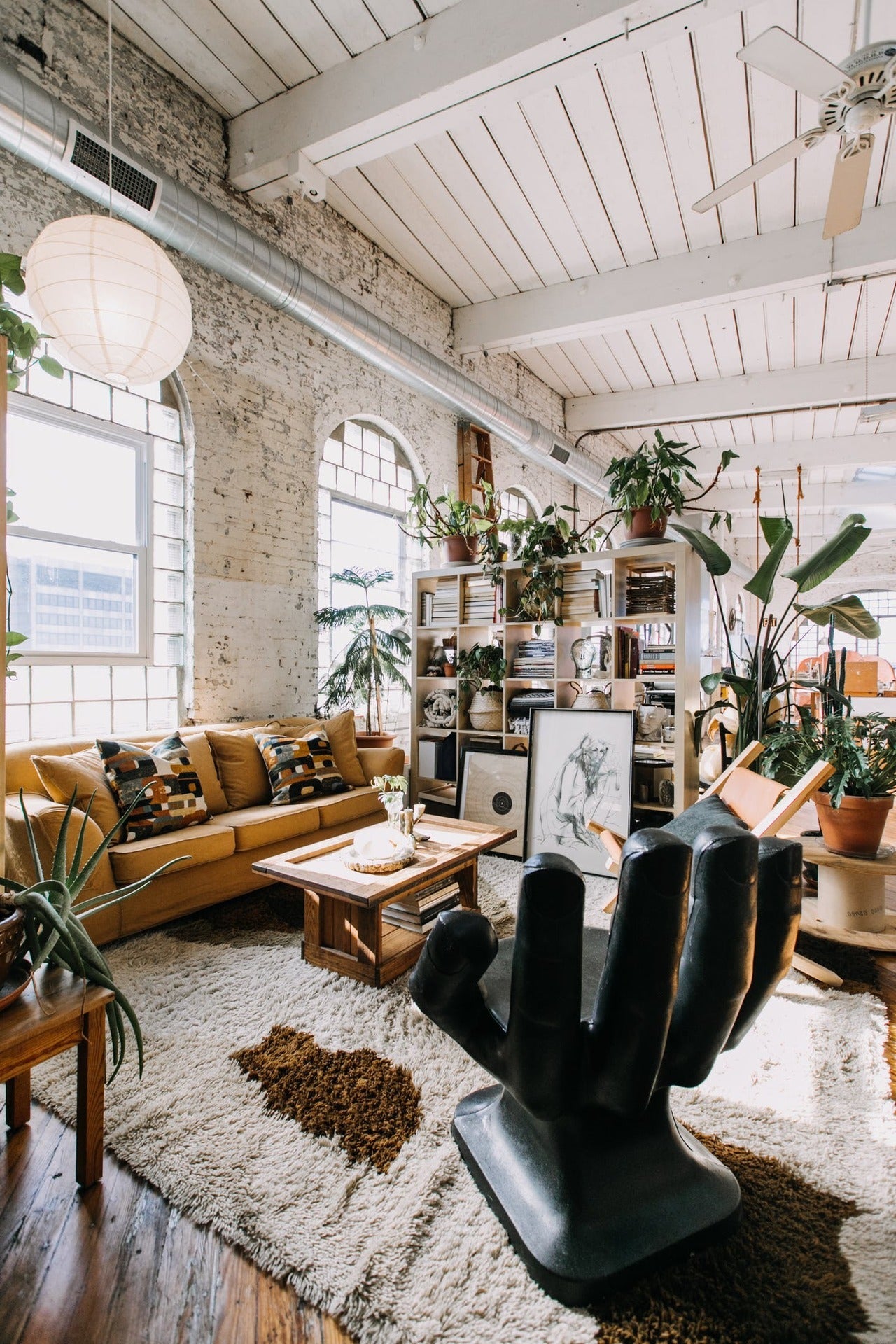
source: Gravity Home
One of the dividers that use space most efficiently is the shelving divider. Choosing a divider that doubles as a shelving unit is the ultimate solution: dividing while creating storage space. Pick or create a shelving unit with a shallow depth and a height to suit your needs. 5-8 ft dividers are perfect for breaking up different areas, and to ensure privacy. On the other hand, dividers below 4 ft can create a visual distinction between areas like the living and dining zones, without completely blocking light and air flow. This is especially useful when there is limited light in the room. For a high level of privacy, opt for shelving that has a closed back. This is perfect in a loft area to separate sleeping and living quarters.
A shelving divider may be attractive, but there are a few things to consider to ensure that it’s pretty and practical too.
- Play with color to avoid a blocked-off effect. Charcoal and other dark colors are perfect as a backdrop for an open unit on which colorful stored items can pop. Or, choose a color to bring attention to the shelf as a beautiful feature.
- Bring your room divider to life with greenery. Potted plants live happily on top of a shelving unit, and can also add more privacy. The touch of nature will soften the square aesthetic of a standing shelf.
- Remember to anchor! Use floor and wall anchors to stabilize a heavy fixture like a room divider.
2) Closet
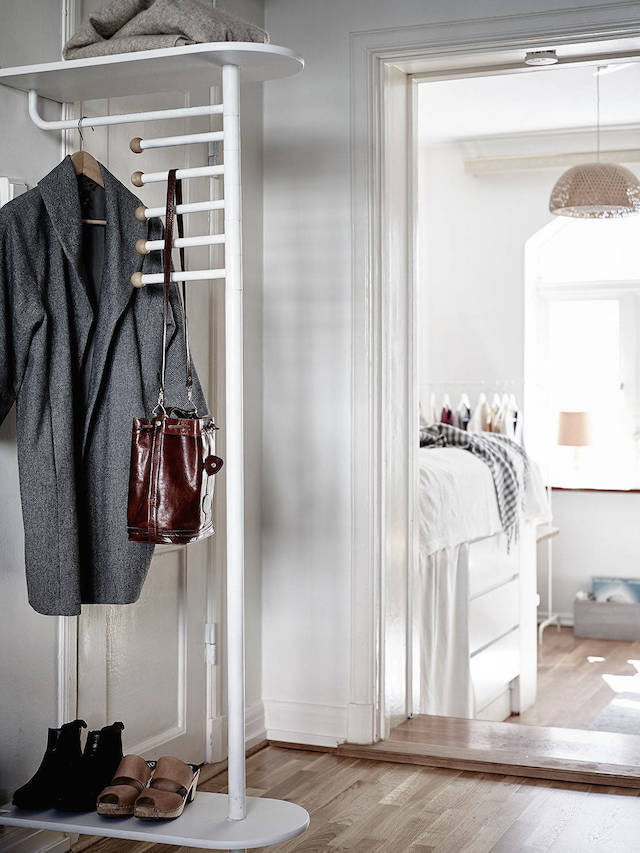
source: My Scandinavian Home
A closet as a room divider is a contemporary fixture inspired by open-plan loft living. In previous years a closet had to have a door and was tucked away out of sight. Now, with beautiful railings, hangers and clothing, open closets are becoming a statement piece. But be prepared: if you’re going with an open closet, know that it has to be neat otherwise or it will only make your home look cluttered. Consider the ideal height for a hanging closet: the rod height for dresses is 80 inches and pants, and shirts need 40 inches from the ground.
An industrial curtain rod is perfect for a large clothing rail. You can even add an intriguing curve, by playing with curved rods and different heights for hanging dresses instead of pants and shirts. If you can’t find a bent rod or pipe, use hinged elbows to connect your clothes rail. This type of room divider is perfect for large loft apartments or even barn homes.
3) Oversized artwork
Using oversized artwork as a room divider is ingenious but tricky. First, the artwork will have to be suspended from the ceiling or anchored to the wall or floor. Second, the piece needs to be double-sided, or you have to use two pieces. This type of look is ideal for eclectic, loft or industrial interiors.
4) Curtains
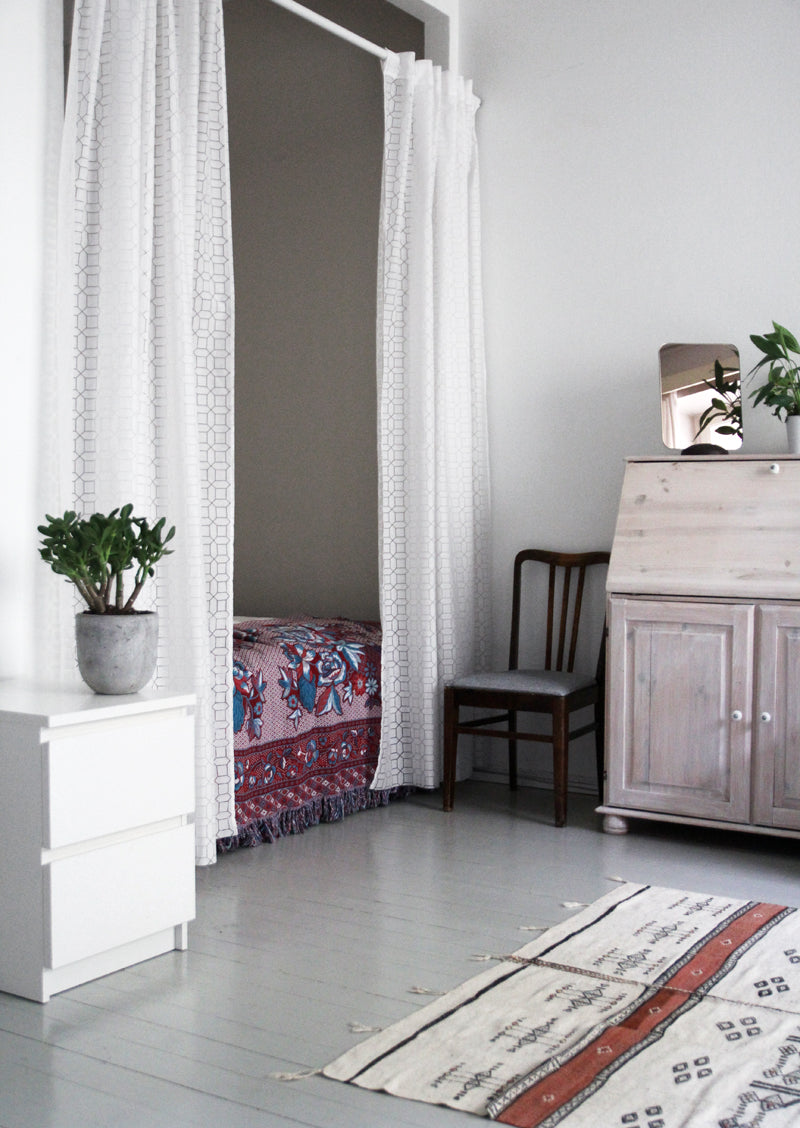
source: Raw Design Blog
The excitement and opportunities curtains and curtain hardware offer are seemingly endless. Besides the foldaway room diver, curtains are the most practical dividing tool. Soft curtains suspended from the ceiling are easy to open and close.
Here you can quickly change from open plan to a roomed layout. Use a traverse track installed on the ceiling to make it easier to move the curtain back and forth. Remember to use support anchors if you’re using a heavy material. In a narrow section like a hallway, you can opt for suspension rods or café rods that don’t need any installation. Choose silk or velvet curtains for a dramatic effect or light linen or sheer curtains for a romantic, feminine addition to your home.
5) Screen
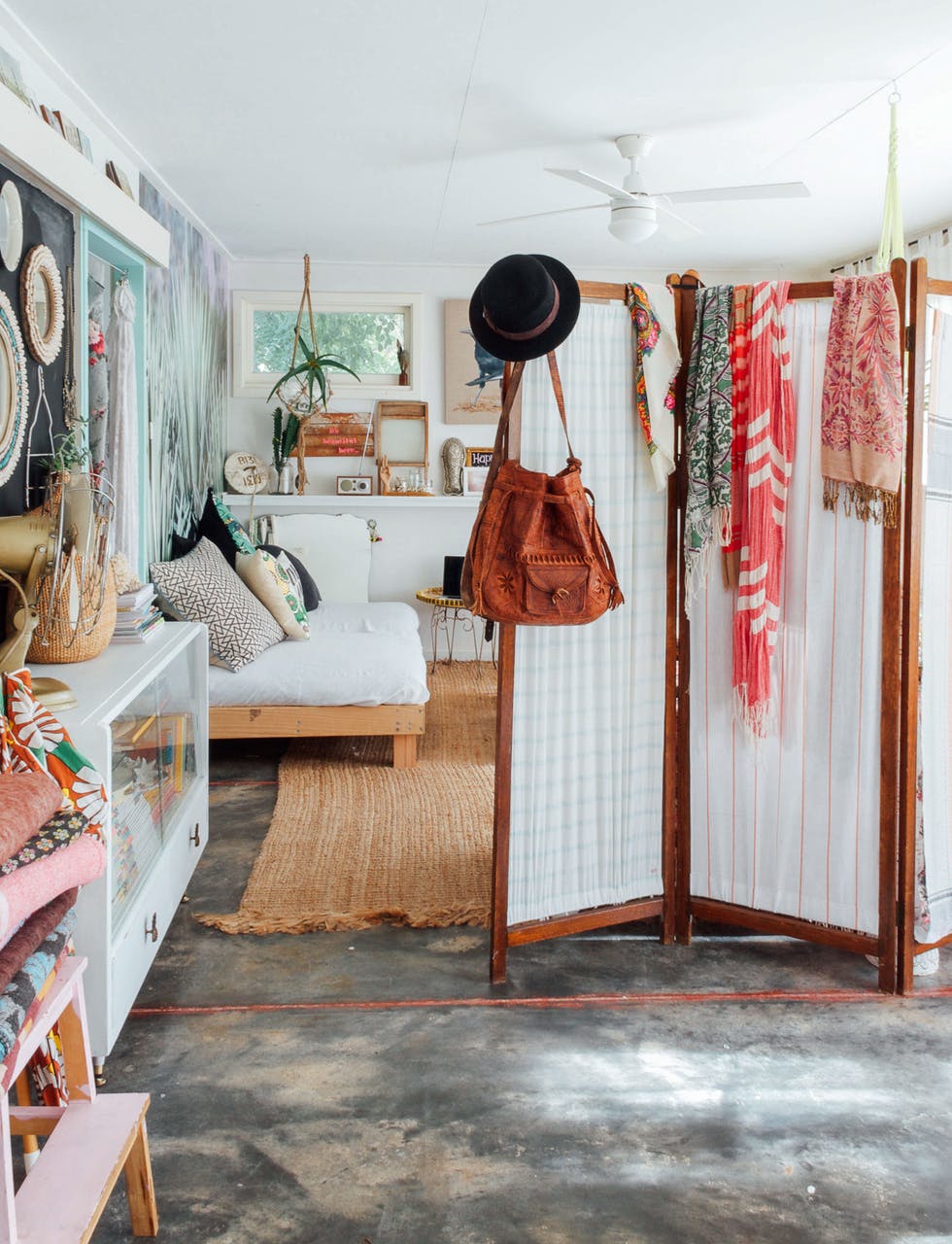
source: Apartment Therapy
The room divider option that pops up most often on internet searches is the traditional screen divider. There are two types of screens; the foldaway and the built-in. A foldaway screen is a great option for those looking for a temporary solution that they can store away without any hassle. However, these temporary screens can be unstable and don’t always work well as permanent fixtures. Built-in screens like shoji-screens usually require a professional to do the installation. Alternatively, a pre-built screen can be hung from a curtain rod that had been fixed on the ceiling to achieve the desired effect.
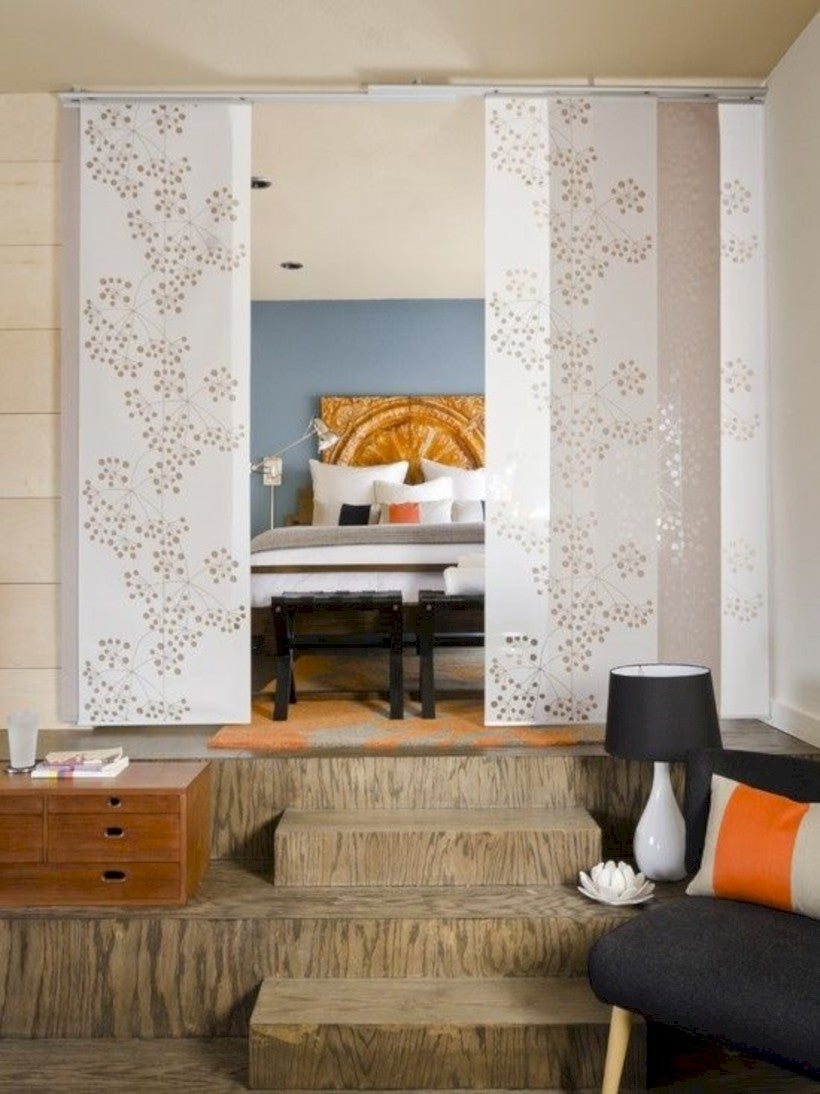
source: HD Society
You can also create a shoji-inspired screen to divide a room. Install a rod at floor height and another one at ceiling height with a rod-pocket fabric panel between them. The fabric could have an oversized floral pattern to create a statement, or a delicate lacy sheer for a softer touch.
6) A living wall
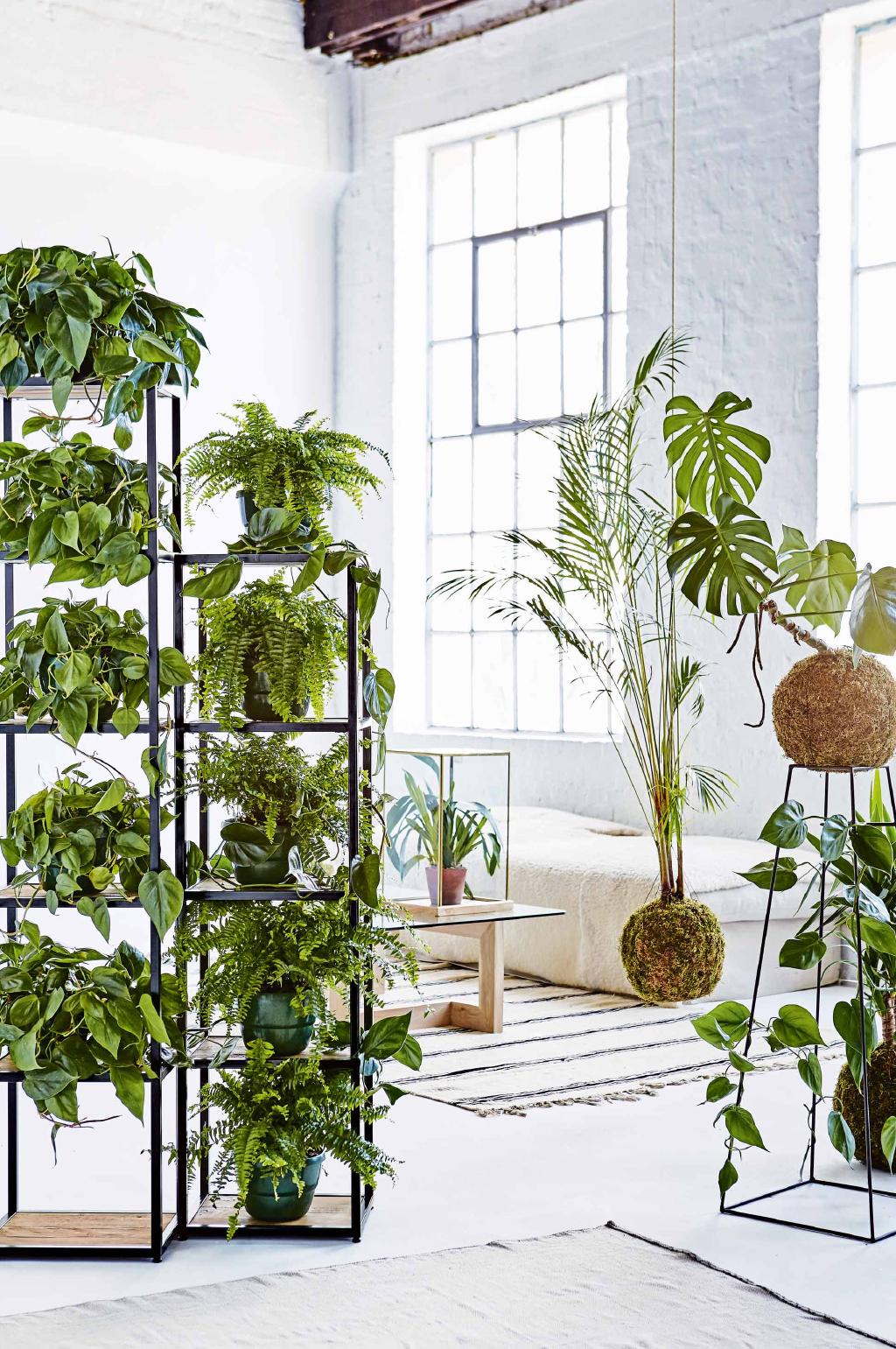
source: Inside Out
We mentioned plants a bit earlier, but if you’re an avid nature-lover you’ll be extremely excited about a living divider! Creating a living room divider is easy; simply install a curtain rod and curtain brackets to the ceiling and suspend kokedama and hanging plants from the curtain rod at different heights!
PRO TIPS:
When choosing your room divider, first determine the total height and width that you’d like to achieve.
Keep in mind that a solid divider will block light. If you only have one window in the room, consider a divider that will allow some of that light through.
Will the divider remain static, or will you open and close it regularly? A fixed divider can be heavy and should be anchored, while a light-weight divider will be easy to manage on a daily basis.

